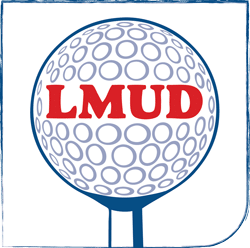Caring for Your Grinder Pump
Grinder pump systems are used in many neighborhoods where site conditions (such as building elevations and ground slopes) make construction of a conventional “Gravity Sewer System” impractical. A grinder pump works like a household garbage disposal, but on a larger scale: it grinds up wastewater produced in your home (i.e. toilet use, shower, washing machine, etc.) and pumps it into the public sewer system. Grinder pump systems have usage considerations that must be followed for the system to function properly. If the guidelines below are routinely followed, the system will typically require very few repairs and maintenance. However, malfunctions are possible. Any irregularity in the system can trigger a red light and audible alarm to go off on the system’s control panel indicating service may be needed.
SYSTEM COMPONENTS
Grinder pumps are typically buried underground with the collection tank lid, a clean out pipe access area, and the corresponding control panel above ground. Illustration 1 shows Service Access Areas that must remain unobstructed at all times. The control panel box may be painted and maintained at the Customer’s expense.
WHAT TO EXPECT
What to expect. Normally functioning grinder pump systems do make some sounds when they turn on, but it should not be disruptive. They also emit minimal, if any, odor. Customers should notice only a slight increase to their electric bill since the grinder pump should only be running a few times a day.
POWER OUTAGES/HEAVY RAIN
A grinder pump system control panel is operated by electricity so power outages affect the ability for the system to function. Customers should limit water disposal down pipes during power outages.
ALERT THAT REPAIRS ARE NEEDED
If a grinder pump system needs maintenance, an audible and/or lighted alarm on the control panel will alert Customers that service is needed. If the alarm does not turn off within about five (5) minutes of discontinued water use, repairs may be necessary.
DURING EXTENDED LEAVE
Prior to vacating a property for extended periods of time, warranting more than three (3) months of disuse of the grinder pump system, Customers should run water down a drain until the pump turns on; this will help to flush out the pump and prevent odors. Do not turn off the pump during extended absences. Pumps need to be run at least once every three (3) months to continue functioning properly.
ROUTINE MAINTENANCE
Maintenance or repairs on any wastewater system often result from flushing inappropriate materials down the toilet, pouring inappropriate materials down a drain, or placing inappropriate waste down the disposal causing blockages. They can also result from situations beyond the Customers’ control, such as excess storm water entering the system, freezing temperatures, or regular wear and tear on system components. Learning the appropriate way to dispose of household waste protects the sewer system, keeps costs down, and protects the environment.
What NOT to Flush Down the Toilet, Pour Down a Drain, or Put Down the Disposal
- Feminine hygiene products, contraceptive devices, and diapers
- Wet wipes of any kind (even those claiming to be “flushable”)
- Dental floss, Q-tips, cotton calls, paper towels, and facial tissues
- Cooking or lubricating oils/grease and greasy foods
- Cat litter, eggshells, coffee grounds, and similar abrasive items
- Pills and other medications
- BOTTOM LINE: Only flush the 3 Ps (pee, poo, and toilet paper) and keep FOG (fats, oils, grease) out of wastewater drains! The items listed above, as well as any other non-dissolvable or abrasive items, should be collected and placed in a trash can or other container for disposal with your household garbage or as otherwise indicated on the product’s label. Medications can be properly disposed of using a community-based “Take-Back Initiative” program. Hazardous waste can be dropped off at designated disposal locations.
PROBLEMS WITH OR QUESTIONS ABOUT YOUR SYSTEM?
As of October 1, 2019, all LMUD customers with a grinder pump pay a maintenance fee as part of their wastewater base charge. With this rate change, rather than customers calling a plumbing company, LMUD is now responsible for performing all necessary repairs and preventative maintenance required to keep the systems functioning properly. It remains the property owner’s responsibility to contact LMUD in order to initiate a work order for any needed repairs. More information can be found here or by viewing the Rate Order.
Please direct any questions or concerns to our main office:
Lakeway MUD
1097 Lohmans Crossing
Lakeway, TX 78734
Phone: (512) 261-6222 x110
Email: customerservice@lakewaymud.org


 You are now being redirected to the WaterSmart page.
You are now being redirected to the WaterSmart page.